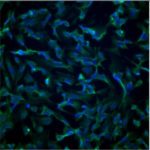Link to Pubmed [PMID] – 32616071
Link to DOI – 10.1186/s13148-020-00893-7
Clin Epigenetics 2020 07; 12(1): 97
Increasing life expectancy but also healthspan seems inaccessible as of yet but it may become a reality in the foreseeable future. To extend lifespan, it is essential to unveil molecular mechanisms involved in ageing. As for healthspan, a better understanding of the mechanisms involved in age-related pathologies is crucial.We focus on the epigenetic side of ageing as ageing is traced by specific epigenetic patterns and can be measured by epigenetic clocks. We discuss to what extent exposure to environmental factor, such as alcohol use, unhealthy diet, tobacco and stress, promotes age-related conditions. We focused on inflammation, cancer and Alzheimer’s disease. Finally, we discuss strategies to reverse time based on epigenetic reprogramming.Reversibility of the epigenetic marks makes them promising targets for rejuvenation. For this purpose, a better understanding of the epigenetic mechanisms underlying ageing is essential. Epigenetic clocks were successfully designed to monitor these mechanisms and the influence of environmental factors. Further studies on age-related diseases should be conducted to determine their epigenetic signature, but also to pinpoint the defect in the epigenetic machinery and thereby identify potential therapeutic targets. As for rejuvenation, epigenetic reprogramming is still at an early stage.


